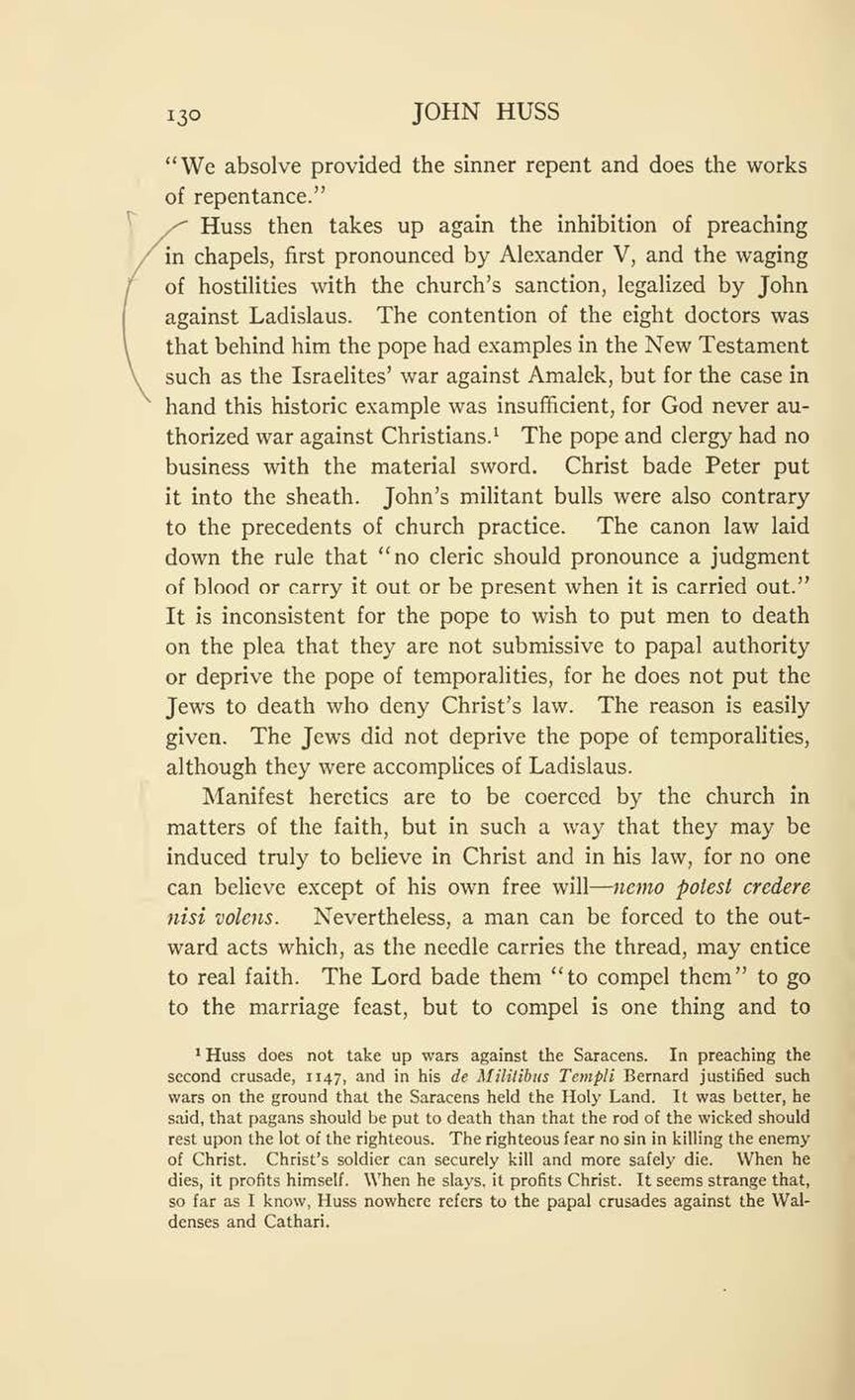“We absolve provided the sinner repent and does the works of repentance.”
Huss then takes up again the inhibition of preaching in chapels, first pronounced by Alexander V, and the waging of hostilities with the church’s sanction, legalized by John against Ladislaus. The contention of the eight doctors was that behind him the pope had examples in the New Testament such as the Israelites’ war against Amalek, but for the case in hand this historic example was insufficient, for God never authorized war against Christians.[1] The pope and clergy had no business with the material sword. Christ bade Peter put it into the sheath. John’s militant bulls were also contrary to the precedents of church practice. The canon law laid down the rule that “no cleric should pronounce a judgment of blood or carry it out or be present when it is carried out.” It is inconsistent for the pope to wish to put men to death on the plea that they are not submissive to papal authority or deprive the pope of temporalities, for he does not put the Jews to death who deny Christ’s law. The reason is easily given. The Jews did not deprive the pope of temporalities, although they were accomplices of Ladislaus.
Manifest heretics are to be coerced by the church in matters of the faith, but in such a way that they may be induced truly to believe in Christ and in his law, for no one can believe except of his own free will—nemo potest credere nisi volens. Nevertheless, a man can be forced to the outward acts which, as the needle carries the thread, may entice to real faith. The Lord bade them “to compel them” to go to the marriage feast, but to compel is one thing and to
- ↑ Huss does not take up wars against the Saracens. In preaching the second crusade, 1147, and in his de Militibus Templi Bernard justified such wars on the ground that the Saracens held the Holy Land. It was better, he said, that pagans should be put to death than that the rod of the wicked should rest upon the lot of the righteous. The righteous fear no sin in killing the enemy of Christ. Christ’s soldier can securely kill and more safely die. When he dies, it profits himself. When he slays, it profits Christ. It seems strange that, so far as I know, Huss nowhere refers to the papal crusades against the Waldenses and Cathari.
